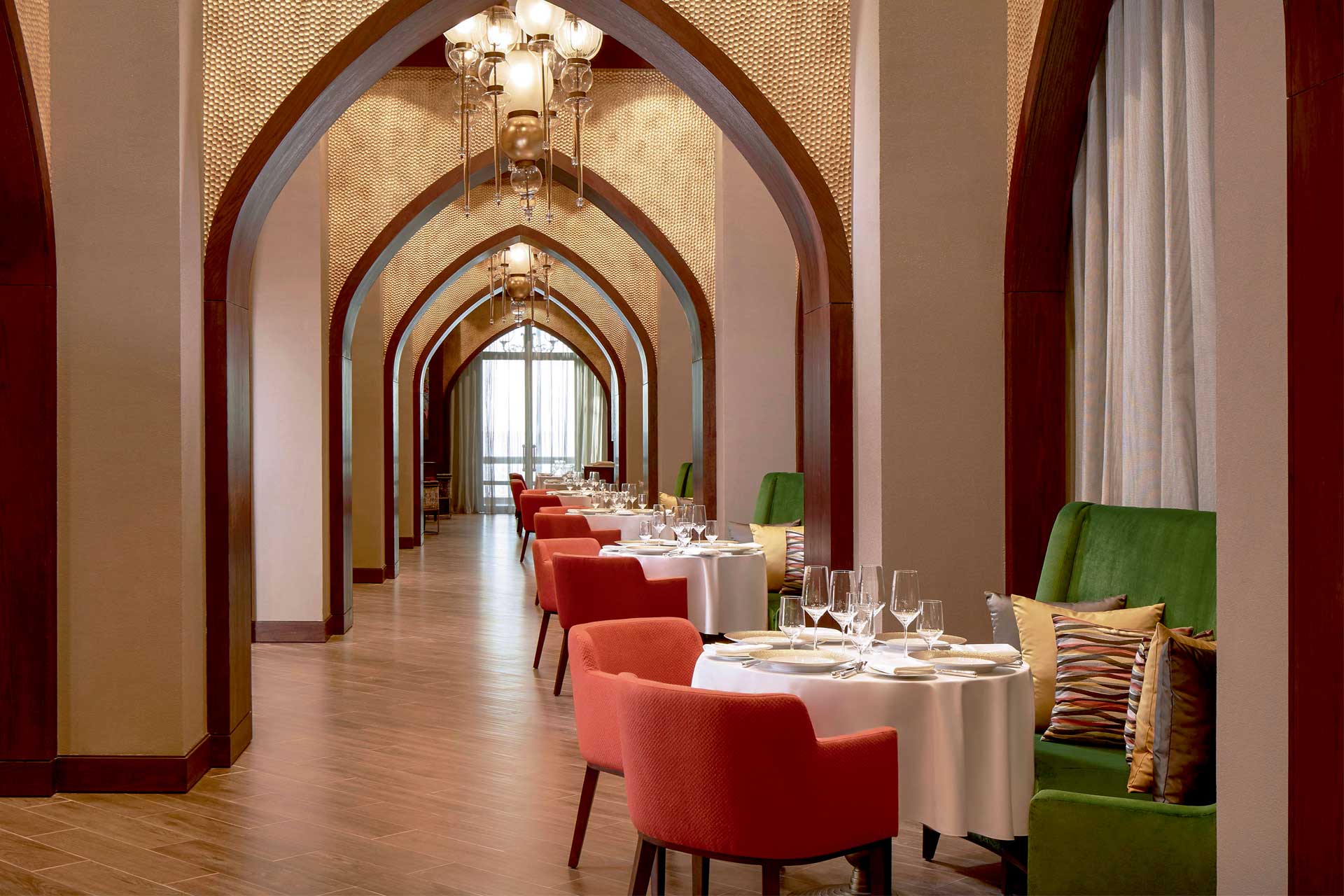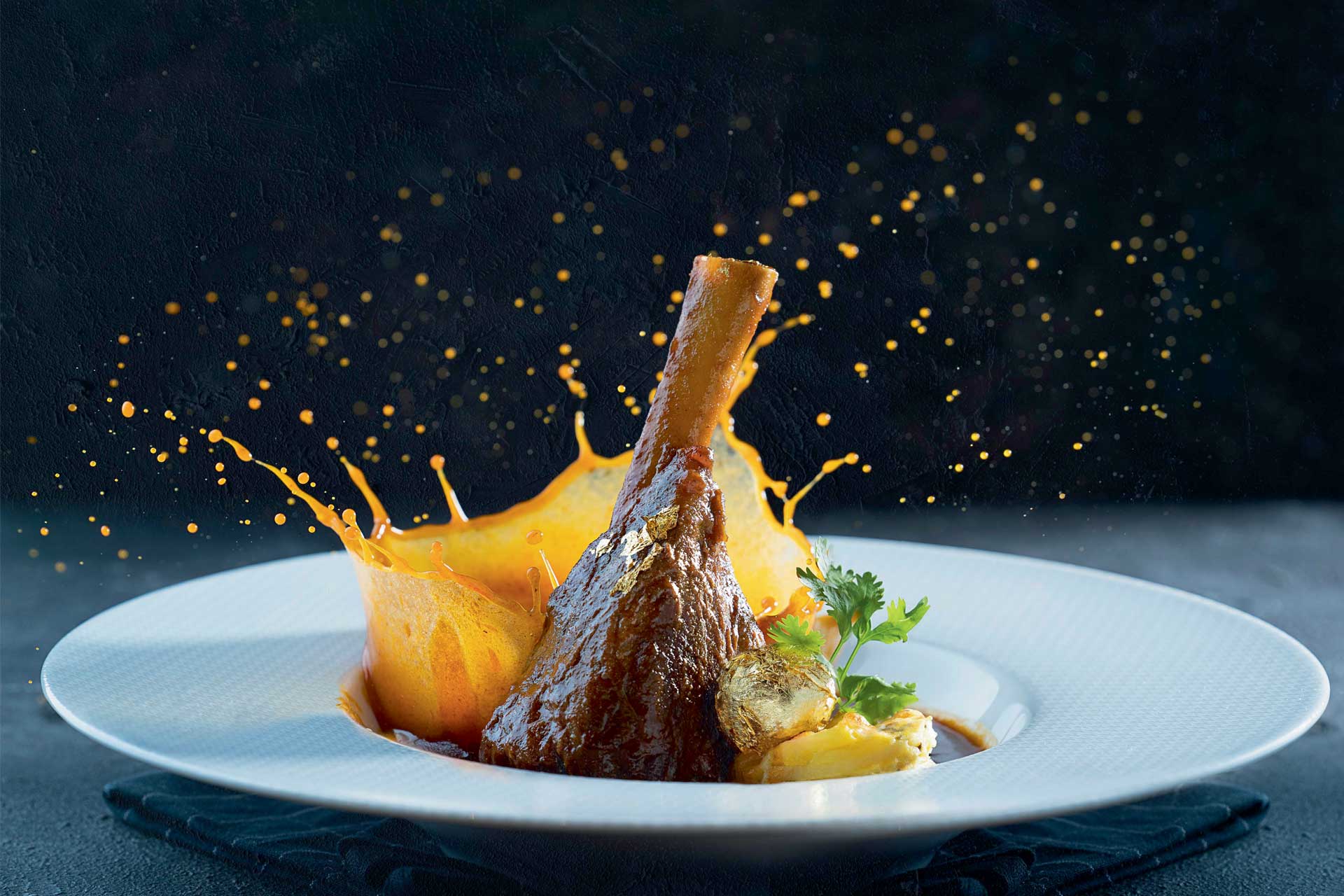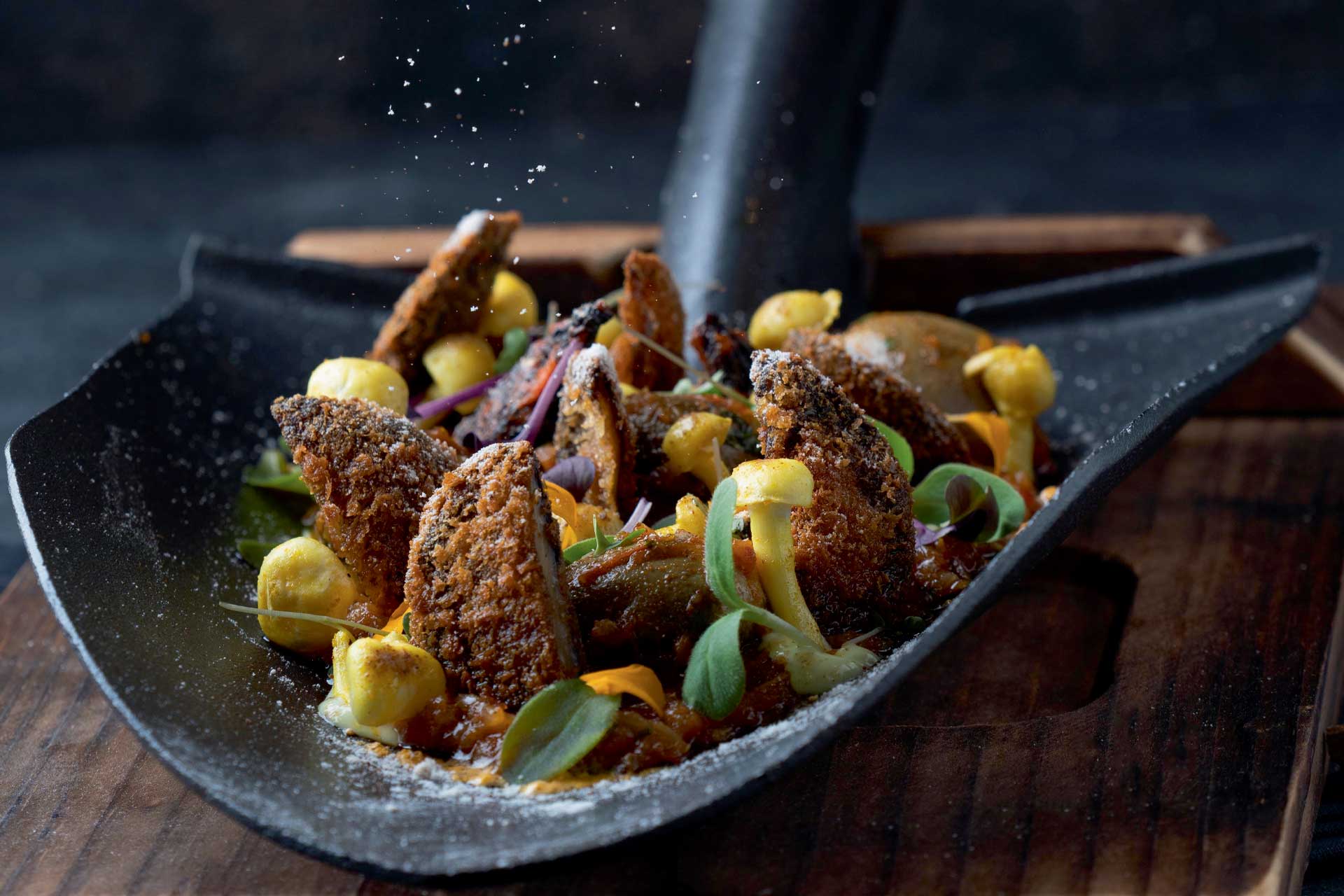With 45 years in hotel F&B under his belt, Hemant Oberoi has seen it all. The Indian chef sits down with Agnish Ray to talk inspiration, destiny and overcoming tragedy.
Indian chef Hemant Oberoi believes in destiny. It was destiny that made him ditch the idea of medical school as he stood before a future as a doctor. It was destiny that struck him with high fever the day of his military service trials, scrapping any hopes of an army life. And as he embarked on a hotel management career, landing a job at one of India’s most prestigious five-star properties, it was perhaps destiny that plunged him into its food and beverage wing.
Many are thankful for the path that Oberoi ended up on. Over a 45-year career, he has wined and dined the who’s who of India’s elite, from business tycoons like the Ambanis and the Mittals to Bollywood stars like Amitabh Bachchan and Rani Mukerji. Politicians spanning the spectrum – from the Obamas and the Clintons to George W. Bush and Narendra Modi – have delighted in his culinary skills, as have showbiz names such as Brad Pitt and Naomi Campbell.
“This was my last option in life,” he laughs, as we sit in the private dining room of the Mumbai restaurant he opened in 2017. It is one of the fruits of OB Hospitalities, a venture he launched after departing his 42-year tenure at Taj Hotels. The eponymously named Hemant Oberoi Restaurant is located in Bandra Kurla Complex, a business district of Mumbai. Corporations like CitiBank, Standard Chartered and ONGC, plus a number of foreign consulates, are his neighbours, as well as his regular customers.
Smartly clad waiters donning white gloves float around the mahogany space, crafted by coveted Mumbai-based interior designer Ashiesh Shah, which is filled with velvet and leather seating, while satin drapes shield the hot, direct sunlight from the streets outside. The menu’s inspirations stretch from Japan to Peru, where the approaches to raw cooking fascinate Oberoi. Star dishes include the brie and truffle soufflé, and lamb shank slow cooked with amarillo chillies. At lunchtime, local business crowds tuck into a golden version of the multi-tiered steel tiffin box so widely used in India.

Historically, the fine dining scene in Mumbai has largely been the stronghold of five-star hotels. The likes of Taj, Four Seasons, Marriott and St. Regis compete for the highest reputation on the food scene – and rely on top chefs like Oberoi to do so. It is a relatively recent development that high-end restaurateurs have started setting up standalone establishments of their own, catering to equally affluent, demanding and food-savvy audiences – and therefore providing a different kind of competition for the hotel industry.
Oberoi has by no means abandoned hotels completely – his latest restaurant, Martabaan, opened at the Emirates Palace Hotel in Abu Dhabi last summer. This multi-billion-dollar property – the third most expensive hotel ever built – is currently undergoing a major management shift, from Kempinski to Mandarin Oriental, since the latter kicked off its two-year takeover plan at the start of 2020. The Hong Kong-based hotel group says their phased renovation will see significant changes to rooms and amenities as well as new food and beverage facilities.
“Martabaan had been on my mind for a very long time,” the chef tells me. While his Mumbai restaurant brings global flavours to India, Martabaan takes Indian cuisine to the world – and Abu Dhabi, the most oil-rich of the Emirates, seemed a smart choice to start up a flashy new operation. Back home, India’s economic slowdown and increasing political tensions have significantly curbed purchasing power, which could threaten luxury spending. Meanwhile, with one of the highest GDP per capita in the world, the UAE offers an attractive playing field for new businesses like Oberoi’s.
“Your basics have to be strong. Then you can do anything in the world – if you forget your roots, one day your roots will forget you.”
It is doubtless challenging, however, to stand out among the abundance of Indian food in the UAE, where Indians make up over 27% of the total population. Oberoi feels that too many Indian establishments out there opt for pomp and drama – think molecular, foam and liquid nitrogen – over perfecting the simple things. “Your basics have to be strong,” he says. “Then you can do anything in the world – if you forget your roots, one day your roots will forget you.”
He named Martabaan after a clay jar used in India for pickling – as was often done in his own family. “I went to Khurja, in Uttar Pradesh, where martabaans are made,” he continues. “I found out that these pieces actually came from Burma, where they used a special clay to make them. In the 16th century the pots started to make their way to China, Japan, India and the Middle East.”
In his Abu Dhabi restaurant, Oberoi pays tribute to these time-honoured vessels – using them to serve meat and vegetables cooked in pickled tomatoes and chillies, which add a rich and distinctive flavour to the dish. The menu features several such twists on traditional Indian cooking, not least the chicken in a can. Inspired by dabba gosht, or the biryani which is pressure-cooked inside an individual glass jar, tucking into the latter reveals delightful layers of rice, meat and spice.

Born in Firozpur, a city in Punjab near India’s border with Pakistan, Oberoi was raised on simple, local staples like butter chicken, dal makhani (creamy black lentils), matar paneer (cottage cheese with peas) and chole (spiced chickpeas). The memories of his grandmother’s cooking remain with him today, but Oberoi knew early on that he wanted to move beyond the ubiquity of north Indian food, and delve deeper into the diversity of the country’s culinary traditions – from Bengal and Bihar to Gujarat and Goa.
Despite sharing its distinctive surname, the chef is not actually related to the Oberoi family whose hotel group operates 12 luxury properties in India and a further 10 around the world. In fact, a young Hemant even turned down a job offer at Oberoi Hotel Group, when told he would have to drop his own surname in order to avoid confusion with the hotel’s brand.
Opting for Taj instead, where his name could be recognised, he spent the next 42 years solidifying the hotel’s reputation as a forerunner of high-end gastronomy, bringing the flavours of the world to Mumbai. He masterminded all its restaurant brands, from Wasabi and Zodiac Grill to Shamiana and Masala Craft; and for around 20 years, he directed the food and beverage offer for all Taj’s 27 luxury properties.
“I take pride in wearing my jacket. I still cook on the range; to create is still my passion.”
But destiny was to take an unexpected and tragic turn for Oberoi on 26 November 2008, when The Taj Mahal Palace was targeted as part of a series of coordinated terrorist attacks across Mumbai. It was just another night of crisp tablecloths and polished silver when four armed attackers entered Oberoi’s place of work and opened fire. Over 160 people were killed during the attacks – around 30 of them at The Taj Mahal Palace Hotel. For seven or eight harrowing hours that night, Oberoi and his team – familiar with the ins and outs of the sprawling 2.3-acre premises – kept guests hidden from attackers in a secure part of the hotel, eventually evacuating as many as possible to safety. To this day, survivors thank Oberoi and his team for having helped save their lives that night.
Their hiding place was The Chambers, an exclusive members bar inside The Taj Mahal Palace, and one of its least accessible areas. Oberoi spent his time in there doing what he does best – looking after his guests. Whether that meant keeping them fed, watered and calm during some of the most frightening hours of their lives, or nursing their bleeding injuries.
Today, airport-like security operates at the entrance of the hotel – and anyone from Mumbai’s busy social scene can tell you that the city has simply not been the same since 26/11. So it was not without some trepidation that Oberoi responded when he was first approached by Australian film director Anthony Maras about the idea of a new film telling the story of what he went through that night.
Released in the UK last September, Hotel Mumbai stars Anupam Kher as Oberoi and Dev Patel as one of his waiting staff, and presents an account of the night’s unfoldings. Although Kher did not meet the chef as part of the preparations, he gives an uncanny portrayal of his calm and collected demeanour. “Guest is God,” the character repeats to his staff in the film – a mantra that Oberoi himself uttered many times during his time at Taj.

The film has received mixed reviews – but many feel it is a deserving tribute to the bravery shown by the Taj staff that night. “I didn’t want them to make me a hero,” Oberoi tells me. “There were a lot of other people involved – my team, my colleagues, security officers.” His humility seems inextricable with the deep pride and love he has for his work. For Oberoi, hospitality is, first and foremost, an act of humanity. “It is your duty and responsibility to save everyone,” he says. “They have come to your house.”
Three weeks after the attacks, Taj’s restaurants were fully open for business again, but it marked the start of a new chapter for Oberoi. “It was not written in destiny for us to die that night,” he reflects on the incident, which gave him a new perspective on life, though instead of slowing down where others might, he has moved forward in new and exciting directions. “I take pride in wearing my jacket. I still cook on the range; to create is still my passion,” he emphasises.
While busy running his hospitality business and finishing his autobiography – entitled My Spice Journey – Oberoi is also preparing to open two more restaurants this year. “I could have hung up my gloves – but in my philosophy, if you’re tired, you’re retired,” he says. “And I’m not tired.”
CREDITS
Words: Agnish Ray
Magazine: Supper 19
Related Posts
18 April 2023
A New Level: An interview with Yannick Alléno
17 November 2022



